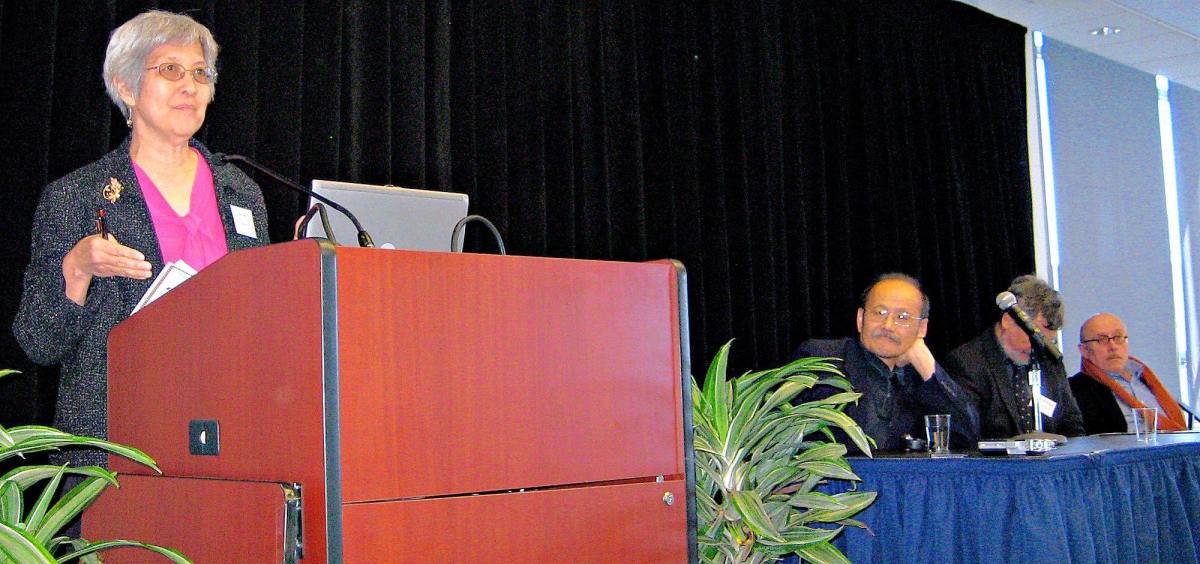By Connor Adams Sheets
The Asian/American Center of Queens College hosted a forum Monday in response to the recently released 2010 U.S. Census numbers showing that the Asian populations both in New York City and Queens increased more rapidly since the 2000 Census than those of any other race.
The conference was a gathering of academics and community advocates aimed in large part at finding ways to better empower Asian-American voters to elect leaders to represent their communities and interests.
The keynote speaker at the event, titled “Immigrant Queens: Defining Communities of Interest,” was Dr. Paul Ong, a nationally recognized professor of urban planning, social welfare and Asian-American studies at the University of California, Los Angeles.
He spoke at length about leading approaches to boosting the influence Asian Americans have in politics, elections and community organizing, saying that improving Asians’ naturalization rates, encouraging political engagement and tweaking laws and policies are important ways to move toward those goals. He also said it is essential that Asian Americans exercise influence over more electoral districts in order to be better represented in government.
“Given that the 2010 Census data has just been released, we’re at the stage of how do we construct electoral districts? And more particularly, can we construct these districts in a way that empowers Asian Americans?” he asked in his opening remarks. “In areas such as Los Angeles, New York, Washington, areas of Washington, D.C., Boston and so forth, we’ve reached a critical population mass and we can no longer be ignored. But the question is can we be effective?”
Much of the rest of the afternoon’s discussion focused on answering Ong’s broad questions with specific ideas and solutions. The Asian population in Queens increased from 391,500 residents as of the 2000 Census to 598,334 in the 2010 survey, bringing the percentage of the borough’s residents who are of Asian descent from 17.6 percent to 23.1 percent, the largest percentage jump in a major racial category over the past decade.
That fact means the Asian population must act now to ensure its place in the political discourse, said the event’s emcee, Dr. Madhulika Khandelwal, director of the Asian/American Center and associate professor in Queens College’s Urban Studies Department.
“I do see ourselves as standing at a very important historical juncture here right now,” she said. “What we are seeing now is a major democratic change happening, so we need to begin to think of this now in terms of we can do something to have a significant impact in years to come.”
May Chen, board president of the New York State Immigrant Action Fund, a new immigrant advocacy group, said a focus on convincing wide swaths of people of the importance of public participation and civic engagement is essential to advancing the goal of increasing Asian communities’ political influence.
“There are many concerns about access to welfare, health care and other political issues, and immigrants are now realizing that those issues are being decided by the people who are voted into office,” she said.
Reach reporter Connor Adams Sheets by e-mail at csheets@cnglocal.com or by phone at 718-260-4538.



































